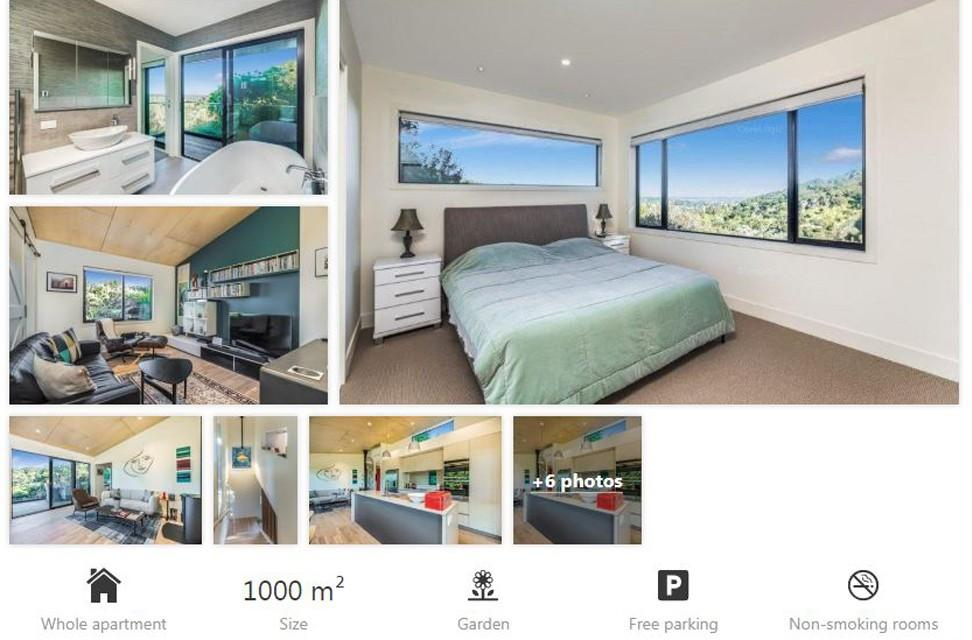Imagine returning to your home on a Saturday afternoon after running errands. As you get to your house, you see two strangers with suitcases on your property. They’re waiting to check-in.
That’s exactly what happened to Tessa King, a resident of Waiheke Island, in New Zealand.
The problem was that she had never advertised her home for rent.
King had no idea that her home had been advertised as a place to stay until she got home and found the couple in a rental car, asking if they could check-in.
The man pulled out his phone and showed her a fake listing that had been advertised on Booking.com, the travel metasearch engine for lodging reservations. The ad included photos of her home from when it was for sale last year.

King was nice enough to direct the couple to somewhere else where they could stay, but the incident left her feeling, “sick and vulnerable.”
“I am usually at home during the day with my infant son and, yes, I guess it made me worry that we could end up with an unpleasant situation,” she told the New Zealand Herald.
King said that trying to get the ad removed from the website wasn’t easy.
At first, she tried to call the site’s phone number in New Zealand (the company is headquartered in Amsterdam but has contact numbers all over the world) but wasn’t able to speak to someone without a reservation number.
She then tried to email the company, but never got a reply. Using the company’s online chat feature didn’t help either.
She even tried contacting her local police department but they said they couldn’t do anything to help.
With nowhere else to turn, King reached out to the hivemind of Facebook and finally got a Booking.com phone number where she could actually talk to someone. They told her to send them a screenshot of the fake listing and email it to them. She did that and never heard back from them.
Finally, the Booking.com ad that has her house for rent was quietly taken down.
King said she was disappointed with Booking.com’s customer service and said the entire situation was, “pretty shocking and certainly an eye-opener.”
Obviously, someone put the fake site up as an illicit money-making venture. If Booking.com doesn’t confirm that a rental site is available (or even exists), and is then less than responsive to complaints, these scammers will keep getting their cut until someone as savvy as Tessa King comes along.
WTG, Booking.com #rolleyes
Like this post? Please share it! We have plenty more just like it and would love if you decided to hang around and get emailed notifications of when we post. Or maybe you’d like to join our Facebook group – we have 11,000+ members and we talk and ask questions about travel (including Disney parks), creative ways to earn frequent flyer miles and hotel points, how to save money on or for your trips, get access to travel articles you may not see otherwise, etc. Whether you’ve read our posts before or this is the first time you’re stopping by, we’re really glad you’re here and hope you come back to visit again!
This post first appeared on Your Mileage May Vary

4 comments
You should tag their Twitter account @bookingcom on the tweet
You’re right, I could. But they already know about it 😉 Thanks for the idea, though – under different circumstances, it probably would be the right thing to do.
Wow, not good. I’ve read similar horror stories about AirBnb, but now I know another one to watch out for.
Dude, I am the queen of “here’s why you shouldn’t use Airbnb” LOLOL! If you need the URLs, LMK.